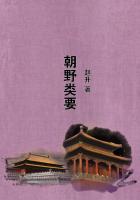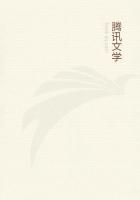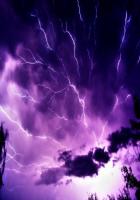We must now describe the forms taken by the passive qualities the moist and the dry. The elements of bodies, that is, the passive ones, are the moist and the dry; the bodies themselves are compounded of them and whichever predominates determines the nature of the body; thus some bodies partake more of the dry, others of the moist. All the forms to be described will exist either actually, or potentially and in their opposite: for instance, there is actual melting and on the other hand that which admits of being melted.
Since the moist is easily determined and the dry determined with difficulty, their relation to one another is like that of a dish and its condiments. The moist is what makes the dry determinable, and each serves as a sort of glue to the other-as Empedocles said in his poem on Nature, 'glueing meal together by means of water.' Thus the determined body involves them both. Of the elements earth is especially representative of the dry, water of the moist, and therefore all determinate bodies in our world involve earth and water.
Every body shows the quality of that element which predominates in it.
It is because earth and water are the material elements of all bodies that animals live in them alone and not in air or fire.
Of the qualities of bodies hardness and softness are those which must primarily belong to a determined thing, for anything made up of the dry and the moist is necessarily either hard or soft. Hard is that the surface of which does not yield into itself; soft that which does yield but not by interchange of place: water, for instance, is not soft, for its surface does not yield to pressure or sink in but there is an interchange of place. Those things are absolutely hard and soft which satisfy the definition absolutely, and those things relatively so which do so compared with another thing. Now relatively to one another hard and soft are indefinable, because it is a matter of degree, but since all the objects of sense are determined by reference to the faculty of sense it is clearly the relation to touch which determines that which is hard and soft absolutely, and touch is that which we use as a standard or mean. So we call that which exceeds it hard and that which falls short of it soft.
5
A body determined by its own boundary must be either hard or soft;for it either yields or does not.
It must also be concrete: or it could not be so determined. So since everything that is determined and solid is either hard or soft and these qualities are due to concretion, all composite and determined bodies must involve concretion. Concretion therefore must be discussed.
Now there are two causes besides matter, the agent and the quality brought about, the agent being the efficient cause, the quality the formal cause. Hence concretion and disaggregation, drying and moistening, must have these two causes.
But since concretion is a form of drying let us speak of the latter first.
As we have explained, the agent operates by means of two qualities and the patient is acted on in virtue of two qualities: action takes place by means of heat or cold, and the quality is produced either by the presence or by the absence of heat or cold; but that which is acted upon is moist or dry or a compound of both. Water is the element characterized by the moist, earth that characterized by the dry, for these among the elements that admit the qualities moist and dry are passive. Therefore cold, too, being found in water and earth (both of which we recognize to be cold), must be reckoned rather as a passive quality. It is active only as contributing to destruction or incidentally in the manner described before; for cold is sometimes actually said to burn and to warm, but not in the same way as heat does, but by collecting and concentrating heat.
The subjects of drying are water and the various watery fluids and those bodies which contain water either foreign or connatural. By foreign I mean like the water in wool, by connatural, like that in milk. The watery fluids are wine, urine, whey, and in general those fluids which have no sediment or only a little, except where this absence of sediment is due to viscosity. For in some cases, in oil and pitch for instance, it is the viscosity which prevents any sediment from appearing.
It is always a process of heating or cooling that dries things, but the agent in both cases is heat, either internal or external.
For even when things are dried by cooling, like a garment, where the moisture exists separately it is the internal heat that dries them. It carries off the moisture in the shape of vapour (if there is not too much of it), being itself driven out by the surrounding cold. So everything is dried, as we have said, by a process either of heating or cooling, but the agent is always heat, either internal or external, carrying off the moisture in vapour. By external heat I mean as where things are boiled: by internal where the heat breathes out and takes away and uses up its moisture. So much for drying.
6
Liquefaction is, first, condensation into water; second, the melting of a solidified body. The first, condensation, is due to the cooling of vapour: what melting is will appear from the account of solidification.
Whatever solidifies is either water or a mixture of earth and water, and the agent is either dry heat or cold. Hence those of the bodies solidified by heat or cold which are soluble at all are dissolved by their opposites. Bodies solidified by the dry-hot are dissolved by water, which is the moist-cold, while bodies solidified by cold are dissolved by fire, which is hot. Some things seem to be solidified by water, e.g. boiled honey, but really it is not the water but the cold in the water which effects the solidification. Aqueous bodies are not solidified by fire: for it is fire that dissolves them, and the same cause in the same relation cannot have opposite effects upon the same thing. Again, water solidifies owing to the departure of heat; so it will clearly be dissolved by the entry into it of heat:

